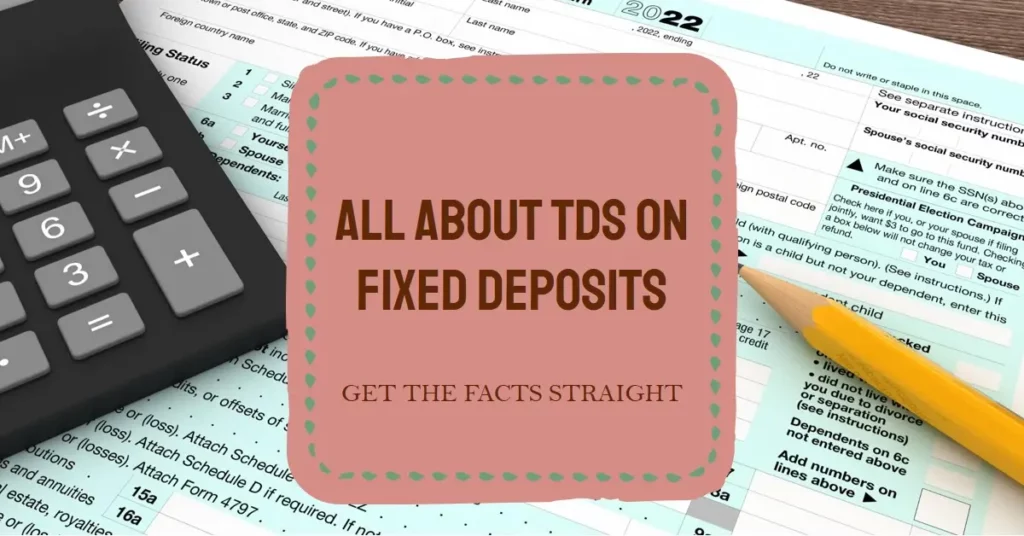Today, investmentsare both necessary and advantageous. Your investments act like an umbrella on a rainy day and facilitate the fulfilment of various goals and desires. Since investing is such a good habit, the earlier you start, the better. Early investments curb unnecessary spending temptation, allowing you to benefit from the power of compounding and accumulate a large corpus over time.
A Fixed Deposit is an incredible investment option, whether you plan to invest early or in the later stages of life. Most of the banks offer this facility. It requires you to make a lumpsum investment at a specific interest rate for a fixed tenure. It earns you modest interest earnings that you receive periodically or at the time of maturity.
What are the tax implications associated with an FD?
You need to pay Tax Deduction at Source on your FD interest income. It is the tax collected from the income source. It applies to your professional and other investment income. The bank does not deduct TDS before disbursing your interest payouts or total maturity value. You need to declare your FD interest income while filing for the Income Tax Return and pay applicable taxes.
You need to declare your FD interest income under the ‘Income from other sources’ category on the ITR form. You draw the Income Tax Department’s attention by failing to declare and pay taxes on your FD interest income. Avoid putting yourself in such a troublesome position.
How are TDS on FD interest income calculated?
The following pointers explain the calculation of TDS on FD interest income:
- The Indian Income Tax Department has set a threshold for TDS deduction on FD interest income. You need to pay TDS if your FD interest income exceeds the threshold limit.
- A different threshold limit caters to bank and NBFC FD income, regular, and senior citizen investors.
Bank Fixed Deposits
- The Income Tax Department has set Rs. 40,000 and Rs. 50,000 as the threshold limit for regular and senior citizen bank FD investors, respectively.
- Suppose you are a regular bank FD investor.Your FD interest income is Rs. 60,000, i.e., more than the threshold limit. This means TDS applies to your FD interest income.
- Your FD interest income gets clubbed with your total income and taxed as per the applicable income tax slab rate.
NBFC Fixed Deposits
- The Indian Income Tax Department has set Rs. 5,000 as the threshold limit for both regular and senior citizen NBFC FD investors.
- Suppose you are a regular NBFC FD investor. Your FD interest income is Rs. 10,000, i.e., higher than the threshold limit. TDS applies to your interest rate on FD.
- Typically, a flat tax rate applies to your FD interest income. However, a higher rate is applicable if you have failed to link your PAN Card details to your ITR.
